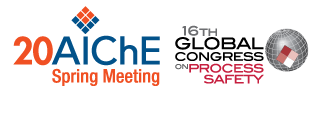

Applying mind-mapping to planning and executing workplace activities could provide a means of reducing errors in common tasks such as welding/cutting, filling/emptying tanks and confined space entry. Trevor Kletz, one of the “founding fathers†of process safety engineering (Vechot et al, 2014), emphasizes the inability of organizations and individuals to learn from past mistakes in his final book, “What Went Wrong?: Case Histories of Process Plant Disasters and How They Could Have Been Avoided, 5th ed. (2009)â€. Due to the complexity of both human and organizational behavior, finding a solution to previous mistakes has been an immense challenge for many companies. As a result, more effective methods to increase individual and organizational learning are needed. Mind-mapping appears to offer a means to organize and and assist in the recall of hazards that have resulted in previous incidents.
This paper describes a methodology for examining previous incidents pertaining to certain common tasks. The emphasis in this effort is to help identify hazards that are hidden from view, and/or not normally encountered and to organize them in a way that is easy to recall or identify. Applying this method can improve procedures and work permits, as well as training and as a check by those directly involved before undertaking a hazardous task.
Presenter(s)
Once the content has been viewed and you have attested to it, you will be able to download and print a certificate for PDH credits.
If you have already viewed this content,
please click here
to login.
Language
Pricing
Individuals
| AIChE Member Credits | 0.5 |
| AIChE Pro Members | $19.00 |
| Employees of CCPS Member Companies | Free |
| AIChE Graduate Student Members | Free |
| AIChE Undergraduate Student Members | Free |
| AIChE Explorer Members | $29.00 |
| Non-Members | $29.00 |
